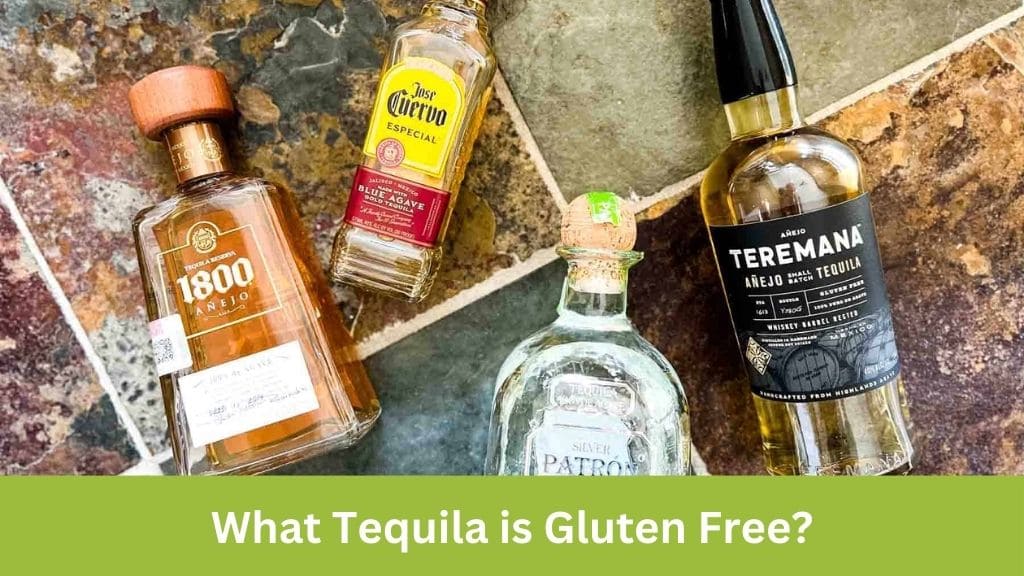In recent years, there has been a surge in awareness about gluten and its effects on health, particularly for those with gluten sensitivities or celiac disease. With this increased awareness, questions about the gluten content of various foods and beverages have become more prevalent. One such question that often arises is whether tequila is gluten-free. In this comprehensive guide, we will delve into the world of tequila to understand what makes it gluten-free and how to make informed choices when selecting tequila products.
What is Gluten?
Before we dive into the gluten content of tequila, let’s first understand what gluten is. Gluten is a group of proteins found in wheat, barley, and rye. For individuals with celiac disease or gluten sensitivity, consuming gluten can trigger adverse reactions, leading to digestive issues, autoimmune responses, and other health problems.
Is Tequila Gluten-Free?
The question of whether tequila is gluten-free can be complex and nuanced. The answer depends on various factors, including the ingredients used in the production process and the potential for cross-contamination.
Traditional Tequila vs. Mixto Tequila
Traditional Tequila:
- Traditional tequila, often referred to as 100% agave tequila, is made exclusively from the blue agave plant.
- Since blue agave is a naturally gluten-free plant, tequila made solely from this ingredient is considered gluten-free.
Mixto Tequila:
- Mixto tequila, on the other hand, may contain a blend of blue agave and other ingredients, such as sugars derived from sources like cane or corn.
- Some mixto tequilas may also contain additives or flavorings that could potentially introduce gluten into the product.
Identifying Gluten-Free Tequila Brands
When selecting tequila, especially for those following a gluten-free diet, it’s essential to look for brands that explicitly state their gluten-free status. Here are some tips for identifying gluten-free tequila brands:
- Look for tequilas labeled as “100% agave” or “100% blue agave.” These designations indicate that the tequila is made exclusively from the blue agave plant, eliminating the risk of gluten contamination.
- Avoid tequilas labeled simply as “tequila,” as these may be mixto tequilas that contain added ingredients.
- Check the label for any potential gluten-containing additives or flavorings, and opt for brands that use natural ingredients.
Gluten-Free Tequila Brands

Fortunately, there are many tequila brands available that are confirmed to be gluten-free. Here is a list of some popular gluten-free tequila brands:
- Agavales Gold
- Calle 23
- Casa Noble Anejo
- Don Julio Blanco
- Espolon
- Fortaleza Blanca
- Jose Cuervo (specific varieties)
- Suerte Tequila Blanco
- Tequila Tapatio
The Basics of Tequila-Making

To understand the gluten content of tequila, it’s helpful to have a basic understanding of the tequila-making process. While traditional tequila is made exclusively from the blue agave plant, mixto tequila may include additional ingredients that could introduce gluten into the final product.
Blue Agave: The Key Ingredient
Blue Agave Plant:
- The blue agave plant is the primary ingredient in traditional tequila production.
- Known for its high sugar content, the blue agave plant provides the raw material for fermenting and distilling tequila.
Potential Sources of Gluten in Tequila Production
Additional Ingredients:
- In mixto tequila production, additional sugars or additives may be used to supplement the blue agave.
- These additional ingredients, if sourced from gluten-containing grains like wheat, barley, or rye, could potentially introduce gluten into the tequila.
Cross-Contamination Risk:
- Even in tequila production facilities where gluten-containing grains are not used as ingredients, there is a risk of cross-contamination.
- Shared equipment or production lines used for other grain-based products could lead to trace amounts of gluten ending up in the final tequila product.
Exploring the Origins of Tequila: Where Can This Iconic Spirit Be Made?
Making Informed Choices When Drinking Tequila
For individuals with gluten sensitivities or celiac disease, making informed choices when consuming tequila is crucial. Here are some tips for ensuring a gluten-free tequila experience:
Read Labels Carefully
Look for Certifications:
- Seek out tequila brands that carry gluten-free certifications or explicitly state their gluten-free status on the label.
Avoid Ambiguous Labels:
- Be cautious of tequilas labeled simply as “tequila,” as these may be mixto tequilas with undisclosed ingredients.
Research Brands and Production Processes
:max_bytes(150000):strip_icc()/How-Is-Tequila-Made-FT-BLOG0822-2000-8f3ab9f6d7a34e35b0132aa4c7afd7ca.jpg)
- Understanding Brand Values and Transparency:
- Researching tequila brands involves delving into their values, ethos, and commitment to transparency. Look for brands that prioritize quality, sustainability, and honesty in their practices.
- Seek out information on a brand’s commitment to using high-quality ingredients, traditional production methods, and ethical sourcing practices.
- Analyzing Production Processes:
- Dive deep into the tequila production process to understand how each brand manufactures its products. Pay attention to key factors such as ingredient sourcing, distillation methods, and quality control measures.
- Learn about the specific steps involved in agave harvesting, fermentation, distillation, and aging. Understanding these processes can provide insights into the overall quality and integrity of the final product.
- Examining Ingredient Sourcing:
- Investigate where tequila brands source their raw materials, particularly the blue agave plant. Brands that prioritize using agave from reputable sources and avoid additives or fillers are more likely to produce gluten-free tequila.
- Look for information on whether brands use additional sugars or flavorings in their products and whether these ingredients pose any gluten-related risks.
- Assessing Quality Certifications:
- Check if tequila brands have obtained any quality certifications or accreditations related to their production processes. Certifications such as “Certified Gluten-Free” or “Organic” can provide assurance of a brand’s commitment to quality and safety.
- Investigate any awards or recognitions the brand has received for its tequila products, as these can indicate a level of excellence and adherence to industry standards.
- Seeking Consumer Feedback and Reviews:
- Look for consumer reviews, testimonials, and ratings of tequila brands to gain insights into the experiences of other consumers. Pay attention to feedback regarding taste, quality, and any issues related to gluten contamination or sensitivity.
- Utilize online platforms, forums, and social media channels to engage with other tequila enthusiasts and gather firsthand perspectives on different brands and their production processes.
Opt for Pure Tequilas
- Minimizing Risk of Gluten Contamination:
- Pure tequilas made from 100% blue agave are inherently gluten-free because the agave plant itself does not contain gluten. By selecting these tequilas, individuals with gluten sensitivities or celiac disease can minimize the risk of gluten contamination in their drinks.
- Ensuring Authenticity and Quality:
- Opting for pure tequilas ensures authenticity and quality in the final product. These tequilas adhere to traditional production methods and prioritize the use of high-quality ingredients, resulting in a superior drinking experience.
- Avoiding Additives and Fillers:
- Pure tequilas do not contain any additives, sugars, or fillers that could potentially introduce gluten into the product. By choosing these tequilas, consumers can enjoy a more natural and authentic flavor profile without the risk of hidden gluten sources.
- Supporting Sustainable Practices:
- Many brands that produce pure tequilas prioritize sustainability and environmental stewardship in their agave farming practices. By supporting these brands, consumers can contribute to the preservation of agave ecosystems and sustainable agricultural practices.
- Promoting Transparency and Trust:
- Pure tequila brands typically prioritize transparency in their production processes, providing consumers with detailed information about their sourcing, distillation methods, and quality control measures. This transparency fosters trust and confidence among consumers seeking gluten-free options.
- Enhancing Flavor and Complexity:
- Pure tequilas often showcase the true essence of the blue agave plant, resulting in a more complex and nuanced flavor profile. By avoiding additives and fillers, these tequilas allow the natural characteristics of the agave to shine through, providing a more authentic and enjoyable drinking experience.
Conclusion
In conclusion, tequila can indeed be gluten-free, but the devil is in the details. While traditional tequila made from 100% blue agave is inherently gluten-free, mixto tequilas may pose a higher risk of gluten contamination. By choosing reputable brands, reading labels carefully, and understanding the tequila-making process, individuals can enjoy tequila responsibly while adhering to a gluten-free diet. Remember, when in doubt, it’s always best to err on the side of caution and prioritize your health and well-being. Cheers to informed and enjoyable tequila experiences!
I’m Chen Mina, from Vol de Nuit, who has a special passion for bartending, especially mixing wine, beer, and cooktail. Here you will find content about alcoholic beverages, I will bring you knowledge that few people know about this drink.





